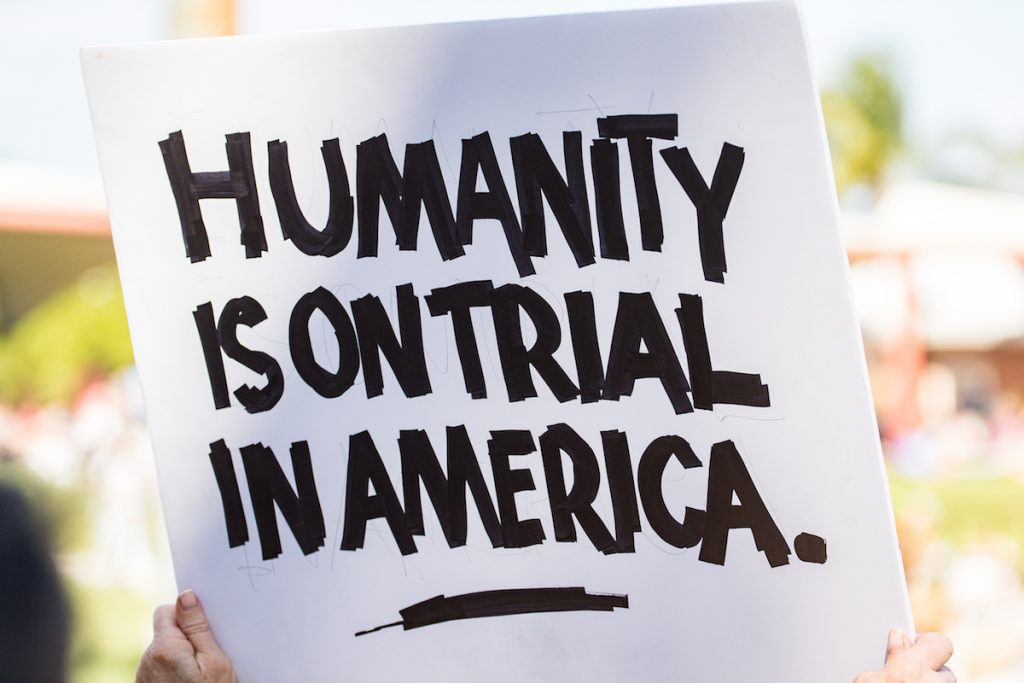This essay is part of our series on Race and Racism in America. See the full collection here.
Russell Moore and many other evangelicals have labored to heighten Christians’ sensitivity and sense of moral urgency regarding racism and race relations. It is a difficult task made more complex by the need to distinguish the old legal structure from the lingering legacies. Lest we be surprised that race continues to be an issue of major concern fifty years after the passing of Martin Luther King, Jr., we should recall that when Henry Kissinger reportedly asked Chou En-lai for his view of the French Revolution, the Chinese premier demurred, saying, “Too soon to tell.” Historical impact unfolds far into the future.
So, it is good to think upon the continuing problem of race and justice in America. But in so doing, we should take care not to set righteous causes in opposition to one another. Somewhat bizarrely to those with memories and long knowledge of the pro-life movement, we now hear suggestions from progressive evangelicals that the protection of unborn life enjoys inappropriate priority over and against black lives. It seems to be becoming a new article of faith among some evangelicals that pro-lifers erred by building a great movement in opposition to Roe v. Wade when so much racial injustice remained to be vanquished. Indeed, the attack may be formulated more sharply to argue that pro-life votes are positively pernicious in the sense that they have supported politicians whose commitment to law and order undermines racial justice.
But it is terribly unfair and wrong to see the goals of the pro-life movement as being in competition for priority with the need to address continuing manifestations of racism. To a large extent, perhaps unappreciated by many, the two struggles share a common foundation. The movement against slavery and institutionalized racism was and is a struggle against dehumanization. Under slavery, the legal regime held that the owner of a slave effectively had the power of life and death over another human being. In other words, the fate of the slave depended upon the wishes of the owner. It should not be difficult to see (and much scholarly and other writing has been produced to this point) that the unborn child is in very much the same situation. If an unborn child is wanted, then he or she has status and protection. If the same child is not desired by its mother, then she and the health care apparatus have the same godlike dominion once extended by the owner of chattel slaves. In fact, the unfortunate unborn life now disposed of may also become an object of commerce in various ways. The parallels are substantial.
Start your day with Public Discourse
Sign up and get our daily essays sent straight to your inbox.Let me repeat that: the two struggles are against the same enemy. The struggle against racism is directed against dehumanization, and so is the fight against abortion.
Now, what progress has been made? With regard to race, the laws that allowed human beings to be made into mere objects of transactions, prevented from having a life of their own, segregated, and even indiscriminately killed have been dismantled. There is little question that laws such as the 1964 Civil Rights Act failed to put a period on the end of the long sentence describing the problem of racism, but at least the de jure structure has been torn down.
With regard to unborn life, the opposite is true. Formal legal structures undercut protection of the unborn. The power to dispose of the life of an unborn child enjoys a protected status equal to or arguably even superior to that of some of our most cherished constitutional rights. When the many problems with the landmark decision in Roe came before the court in Planned Parenthood v. Casey, did the justices lament the loss of millions of lives and rejoice at the opportunity to revisit a bad decision? No. Instead, they noted that too many had relied upon Roe to repeal it now. Similar arguments could easily be made with regard to official structures of racism, but we have at least come far enough to reject those on their face. The struggle against dehumanization has been more successful (while not triumphant) so far with regard to race, I think, than it has for the unborn victims of the sexual revolution.
That is why I object to the claim now heard that unborn lives have been prioritized over “living black lives,” as one writer put it. The pro-life movement did not just magically materialize after Roe. Do the research, and you will see that many evangelicals and other Protestants largely shrugged their shoulders about the decision or perhaps even offered mild words of endorsement. There is a real sense in which the evangelical community was as indifferent to the fate of the unborn as they are now charged with being on the matter of race. It was through the heroic efforts of Francis Schaeffer, C. Everett Koop (the future Surgeon General and pioneer in fighting the AIDS crisis), and a handful of others that evangelicals joined with Catholic brothers and sisters in solidarity for the unborn, who are surely the most voiceless and powerless of all human beings.
The fight for the lives of the unborn has been part of the fight against the dehumanization and disposability of human beings. It is not part of some competition within that movement. Those who fight for life and against racism fight for the same thing. For some reason, it is considered a trifle that pro-lifers vigorously seek to protect the large populations of minority unborn children in danger of abortion and that many cross-racial public policy alliances occur for exactly that reason. Planned Parenthood has its own complicated racial legacy. It remains the case, as some have noted, that the most dangerous place for a black child to be in the United States is in the womb.
In addition, we should not underrate the extent to which the pro-life movement bridged the enormous rift between Catholics and Protestants. Anyone over fifty-five or so can attest to the monstrous slanders to which many Catholics were subjected before the two communities reached a greater appreciation of what they have in common via the pro-life movement. (My own mother was asked whether Catholic brides had to sleep with a priest on their wedding night. We can also remember the Catholic Church’s frequent characterization as “the whore of Babylon.”) The love for John Paul II among Protestants had much to do with the leadership and moral authority he and Mother Teresa exercised on behalf of the cause of life.
One of the frequent tropes of those who would undermine the pro-life movement’s moral and spiritual legitimacy is to claim that it is somehow bankrupt because it fails to take in every cause that could conceivably be related, such as welfare benefits, universal health care, abolition of the death penalty for murderers, and so on. But to propose such a standard is to cynically throw acid at the feet of any social movement, as all fail this unachievable bar of comprehensiveness. The pro-life movement seeks to make it illegal to destroy innocent human life (including the Down syndrome children terminated at rates that shock the conscience). That alone is a worthy goal. It, like the goal of fighting slavery, requires no other to validate it.
Racism is a sin. Abortion is a sin. Both deny human dignity. Both degrade a being made in the image and likeness of God. We must combat both.














